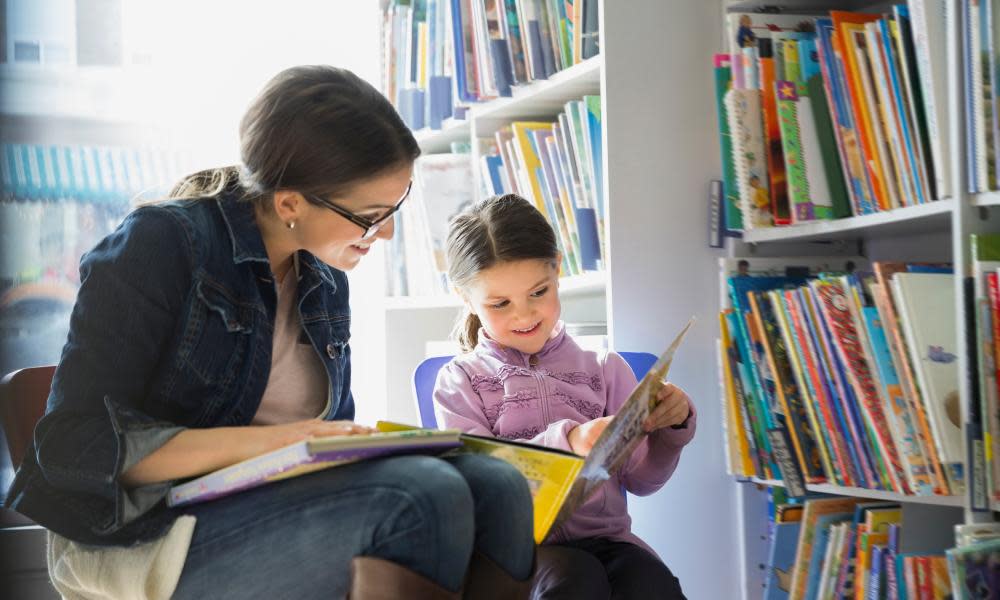Poorer families to get text messages in trial to support early learning

Parents are to be sent three text messages a week offering tips on how to support their child’s early learning at home as part of a government drive to improve school readiness among children from poorer families.
The texts will be sent to disadvantaged families with four- and five-year-olds, encouraging activities to improve literacy and numeracy, “such as counting the number of plates on the table”, according to the Department for Education.
It is one of a number of trials being launched by the DfE aimed at supporting the early educational development of disadvantaged children who, on average, are four months behind their wealthier peers by the age of five. By the time they sit their GCSEs, their overall attainment lags by 19 months.
The study will involve 2,700 families from 105 schools in the north-east over an eight-month period. The results will be compared with those from separate trials that will test the effect of regular home visits by early years experts on the development of disadvantaged children.
In one, trained experts will visit 320 families with two-year-olds in South Yorkshire twice a week at home for 15 months, providing books and educational toys and teaching parents activities to help develop their children’s reading and conversation.
Announcing the trials on Wednesday, the education secretary, Damian Hinds, will also outline plans for a separate project in which families from disadvantaged backgrounds with children aged two to four will be given free access free to DfE-approved early learning apps for smartphones and tablets.
The DfE is promising to buy subscriptions to “the best” early learning apps, which will be made available to parents in 12 pilot areas across England. The apps will be selected by an expert advisory panel set up by the government last month to test apps and provide guidance to parents.
“The home learning environment can have a huge impact on a child’s ability to succeed in life,” said Hinds, “so I want to support families with hints and tips to propel their child’s learning so they are not behind on their first day of school and they can go on to reach their full potential, whatever their background.”
Acknowledging the difficulties that new technology can present for parents, he added: “Screens can be an easy distraction for children, but harnessing the power of technology to support early communication and development means that we have another tool in our arsenal to help young kids develop those skills.”
The projects will be run by the Education Endowment Foundation (EEF) and the Leeds-based education charity SHINE. Sir Kevan Collin, EEF’ chief executive, said: “Parents want the best for their children, whatever their background or wherever they come from. But it can sometimes be difficult to get parents involved in their child’s learning in practical ways which make a difference and we know little about how to do this well.
“By testing different ways of improving the home learning environment, from texts to parents to home visits, these new trials will give us much needed information about how we can give mums and dads the tools they need to give their child the very best start in life.”

 Yahoo News
Yahoo News 
